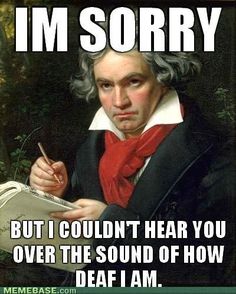Hearing isn't a black or white, yes or no, type of deal. There is a specific threshold for each ear, at each frequency tested. For example, someone might be able to hear 2000 Hz at a threshold of 20 dB, but then with a somewhat common sloping high frequency loss, they may need a level of 40 dB at 4000 Hz, and maybe 60 dB at 8000 Hz for a given ear. I'm not really sure how some of you are getting these "hearing limits" though, because as someone with a doctorate in Audiology I do plenty of hearing tests and we don't test inter-octave values such as 13,5000 Hz, much less routinely even test above 8000 Hz. In some cases of tinnitus or concerns over ototoxic drugs (such as chemo meds) we do high frequency but its not part of the complete hearing evaluation (IDC billing code 92557) and we don't ever tell someone that can or can't hear a specific frequency. The results are just conveyed with regards to shape and severity of the hearing loss.

